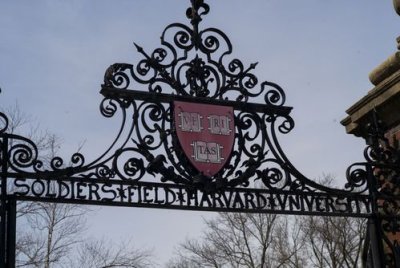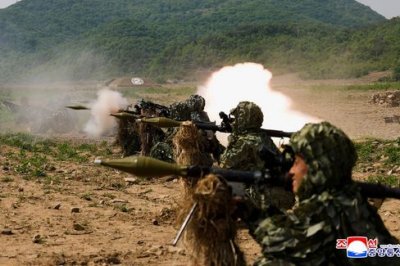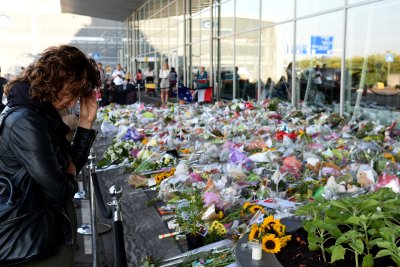Russian Harvard researcher detained for months charged with smuggling

Kseniia Petrova, a Russian Harvard University Medical School researcher held in U.S. Immigration and Customs Enforcement custody since February, was arrested and charged with smuggling biological material into the United States on Wednesday. File Photo by CJ Gunther/EPA-EFE
May 14 (UPI) — A Russian Harvard University Medical School researcher held in U.S. Immigration and Customs Enforcement custody since February has been arrested and charged with smuggling biological material into the United States.
The one count of smuggling goods into the United States was announced by the Justice Department on Wednesday, marking a dramatic escalation in the case that has garnered attention from academics.
According to the affidavit in support of the criminal complaint — which was dated Monday but made public Wednesday — Kseniia Petrova had frog embryos and embryonic samples in her possession when entering the country that she did not declare to immigration authorities.
The document states she arrived at Boston’s Logan International Airport from Paris on Feb. 16. A Customs and Border Protection canine alerted its handler to Petrova’s bag, which was removed and brought to an agricultural secondary inspection area for further screening where biological items were found.
When questioned about it, she allegedly denied carrying any biological material, but a search of a plastic bag she was carrying revealed additional biological material.
Under oath, she admitted that the items were biological material and said she was not sure if she was supposed to declare them on her arrival, the document states, adding that a search of her found text messages to the contrary.
“[I]f you bring samples or antibody back, make sure you get the permission,” one text message she received from an unidentified person said.
“What is your plan to pass the American … Customs with samples? This is the most delicate place of the trajectory,” another text message read.
A third message to Petrova’s phone had asked: “what is your plan for getting through customs with samples?”
“No plan yet,” Petrova allegedly replied, according to excerpts of the messages included in the court document. “I won’t be able to swallow them.”
If convicted, Petrova could face up to 20 years in prison, five years of supervised release and a fine of up to $250,000.
“The rule of law does not have a carve out for educated individuals with pedigree,” U.S. Attorney Leah Foley said in a recorded statement.
The affidavit states her visa was canceled at the airport.
“The U.S. visa that Ms. Petrova was given — which was revoked by customs officials as a result of her conduct — is a privilege, not a right.”
Her lawyer, Gregory Romanovsky, told The New York Times that Petrova’s J-1 visa was canceled and that deportation proceedings were initiated.
He said normally, a case like this would be treated as a minor infraction, and that filing the criminal charge three months after the alleged violation, “is clearly intended to make Kseniia look like a criminal to justify their efforts to deport her.”
Romanovsky also added that a Vermont hearing held earlier Wednesday had essentially established that his client was detained unlawfully and that the complaint had “blindsided” them, and Petrova’s transfer from immigration to criminal custody was “suspect” as it occurred right after a judge set a bail hearing, signaling she could be released.
During the Vermont hearing, U.S. District Judge Christina Reiss had questioned the government over the legality of its actions.
“Where does a Customs and Border Patrol officer have the authority on his or her own to revoke a visa?” Reiss asked, NBC News reported.
“You cannot be found inadmissible because of the customs violation.”
According to the affidavit, Petrova told customs that she is fearful of going back to Russia.
“She claimed she had protested the Russian Federation,” the affidavit states. “She provided no other details.”
In an opinion piece she wrote for The New York Times — and which was published Tuesday — Petrova states she had left Russia after being arrested for protesting its war in Ukraine.
The charge was filed as the Trump administration has been conducting a crackdown on immigration, including targeting foreign-born academics, particularly over their support for Palestine amid Israel’s war against Hamas in Gaza.
Some of those detained students have been released by judges who have ruled against the Trump administration’s use of immigration enforcement to seek to deport them.
Last week, White House senior adviser Stephen Miller said they are “actively looking at” suspending the writ of habeas corpus, which is the right to challenge the legality of a person’s detention by the government.




